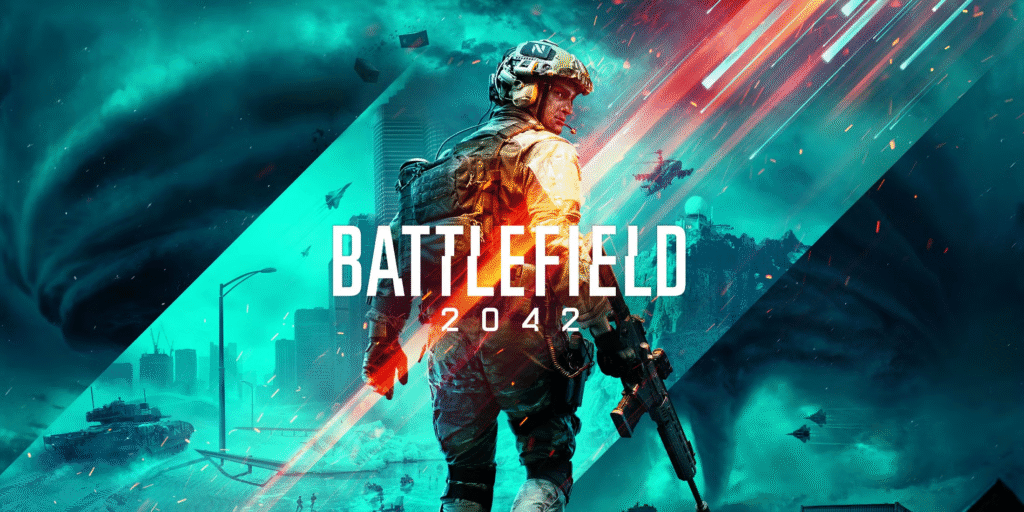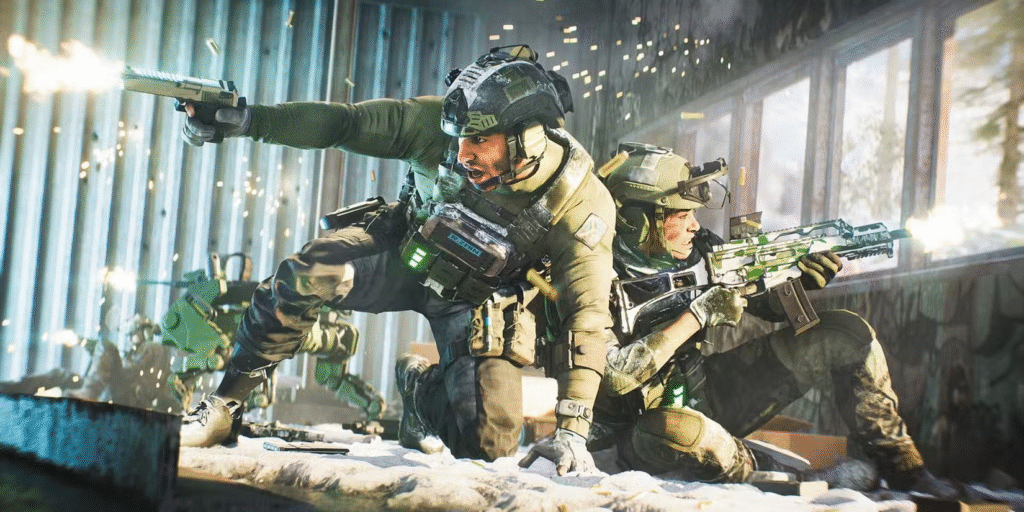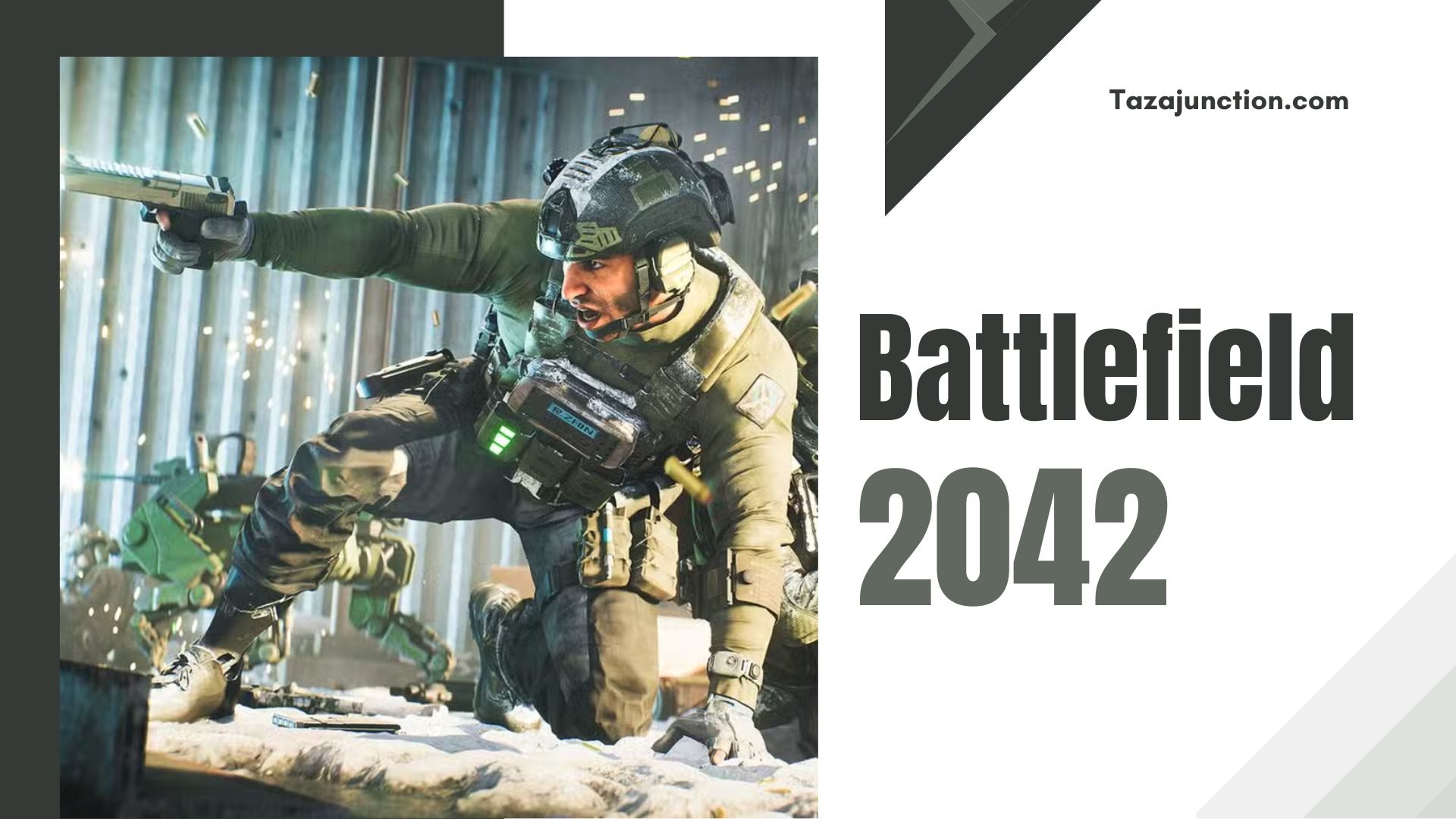When Battlefield 2042 was announced, expectations were sky-high. Fans were ready to jump into massive-scale warfare with next-gen visuals, dynamic weather events, and futuristic combat. But fast forward to its release—and the months that followed—and the sentiment around the game has been mixed at best.
While the game has seen improvements through patches and content updates, one recurring complaint still dominates online forums and player discussions: the Battlefield 2042 missed opportunity that could have made it truly groundbreaking. But what exactly was that missed opportunity?
This TazaJunction.com article dives into the core of what players believe Dice and EA overlooked in Battlefield 2042, and why it continues to cast a shadow over the game’s legacy.
Table of Contents
A Game That Promised the Future of Warfare
Let’s start by acknowledging the ambition behind Battlefield 2042. With its move to a near-future setting, the game promised 128-player matches, weather systems like tornadoes and sandstorms, robotic combat dogs, and the flexibility of specialist classes.
The marketing and initial footage suggested a game that would redefine the Battlefield series and take advantage of next-gen hardware.
However, upon launch, reality didn’t quite meet expectations. Bugs, performance issues, design inconsistencies, and missing features all contributed to the frustration.
But beyond the technical hiccups, players quickly started discussing a much deeper problem—the Battlefield 2042 missed opportunity in terms of design philosophy and connection to the series’ roots.
What Was the Biggest Missed Opportunity?

Ask most long-time fans, and you’ll hear a common answer: The lack of a traditional class system and immersive team-play mechanics.
Battlefield has always been about large-scale warfare where each player contributes to the team in meaningful ways—whether as a medic reviving teammates, an engineer repairing vehicles, or a support class dropping ammo.
In 2042, Dice replaced these classic roles with Specialists—characters with unique gadgets and backstories but fewer gameplay distinctions.
This shift, many believe, diluted the core Battlefield experience. The Battlefield 2042 missed opportunity was failing to preserve the franchise’s identity while trying to chase trends in hero-based shooters.
Why Specialists Didn’t Resonate?
Specialists brought flair and personality, but they also led to several unintended consequences:
- Reduced teamwork: Without defined roles, players were less likely to work together. The clear structure of “You’re the medic, I’m the engineer” disappeared.
- Unbalanced gameplay: Some Specialists had gear or abilities that disrupted the flow of combat, making matches chaotic instead of strategic.
- Loss of immersion: Seeing identical Specialists on both teams, or having no consistent visual indicators for roles, broke the realism fans had come to expect.
The Battlefield 2042 missed opportunity wasn’t just about gameplay—it was about the emotional connection players had to contributing to a cause in the chaos of battle.
Lack of a Compelling Campaign
Another point fans raise when discussing the Battlefield 2042 missed opportunity is the absence of a single-player campaign. While Battlefield is primarily known for its multiplayer, campaigns like those in Battlefield 1 and Battlefield: Bad Company 2 added depth, lore, and emotional weight to the experience.
2042 introduced a world torn by climate disasters, collapsed nations, and mercenary warfare—but failed to explore these ideas through a story. Instead, lore was delivered through online blurbs and multiplayer cutscenes, which left players feeling detached.
A campaign could have anchored players in this world, introduced the Specialists more meaningfully, and raised the stakes of multiplayer battles.
Without it, the narrative felt like background noise—a Battlefield 2042 missed opportunity to fully immerse players in its dystopian future.
Community Tools Were Neglected

Beyond gameplay and story, fans also lamented the lack of robust community features at launch. Long gone were in-game voice chat, a fully functional scoreboard, and intuitive squad management tools.
These omissions hurt communication and coordination, leading many players to feel isolated in a game designed for massive collaboration.
The Battlefield 2042 missed opportunity here was failing to prioritize community-driven features that enhance the social and strategic aspects of the experience.
Though many of these features were added in later updates, the damage to the initial player experience was already done. First impressions matter, especially in live-service games, and many early adopters never returned.
Portal Mode: A Glimmer of Potential
One aspect of 2042 that excited players was the introduction of Portal—a sandbox tool allowing players to create custom matches using assets from previous Battlefield games. It was widely seen as a love letter to the franchise’s past.
Unfortunately, even Portal suffered from neglect. Limited promotion, lack of consistent updates, and restrictions in its toolset meant that its potential was never fully realized. What could have been a thriving hub for creativity and nostalgia became a niche corner of the game.
In short, even the most promising addition became another Battlefield 2042 missed opportunity due to poor follow-through.
Lessons the Franchise Can Learn
With all these missteps in mind, what lessons can future Battlefield titles—and the industry as a whole—learn?
1. Stay True to Your Core Identity
Fans don’t reject innovation, but they do expect it to build on what made the franchise special. Battlefield is about team roles, immersive warfare, and meaningful objectives. Any new mechanic should enhance that, not replace it.
2. Don’t Rush to Market
The initial release of 2042 felt rushed. Several standard features were missing, performance was inconsistent, and the polish just wasn’t there. Rushing to meet a release window at the cost of player trust is a recipe for long-term loss.
3. Listen to the Community Early and Often
Many of the issues flagged post-launch had already been discussed during beta testing and earlier reveals. Engaging deeply with the community before launch can prevent long-term backlash and guide development priorities.
The Battlefield 2042 missed opportunity is now a cautionary tale for how not to handle a major franchise’s evolution.
Redemption Arc: Is It Too Late?
To Dice’s credit, the studio has worked hard post-launch to fix and improve Battlefield 2042. Scoreboards were added back, specialists were balanced, maps reworked, and new content has slowly rolled out. Some fans have returned, finding a more stable and enjoyable game than at launch.
Still, many argue that it’s too little, too late. In the modern gaming landscape, where players have countless alternatives and short attention spans, regaining lost goodwill is incredibly difficult.
The best-case scenario now is for the next Battlefield installment to learn from the Battlefield 2042 missed opportunity and return to what made the series great—while still innovating in smart, respectful ways.
Final Thoughts
The Battlefield 2042 missed opportunity isn’t just one thing—it’s a combination of several decisions that led the game to feel disconnected from its legacy and its community.
From ditching core class systems and omitting a single-player campaign to underdelivering on community tools and Portal mode, 2042 felt more like an experiment than an evolution.
Yet, within all the criticism lies a hope: that these lessons will shape a stronger, more focused Battlefield experience in the future. The fanbase is still there. The desire for cinematic, strategic, team-based warfare is stronger than ever.
All it takes now is for the developers to listen—and to remember what made Battlefield special in the first place.

